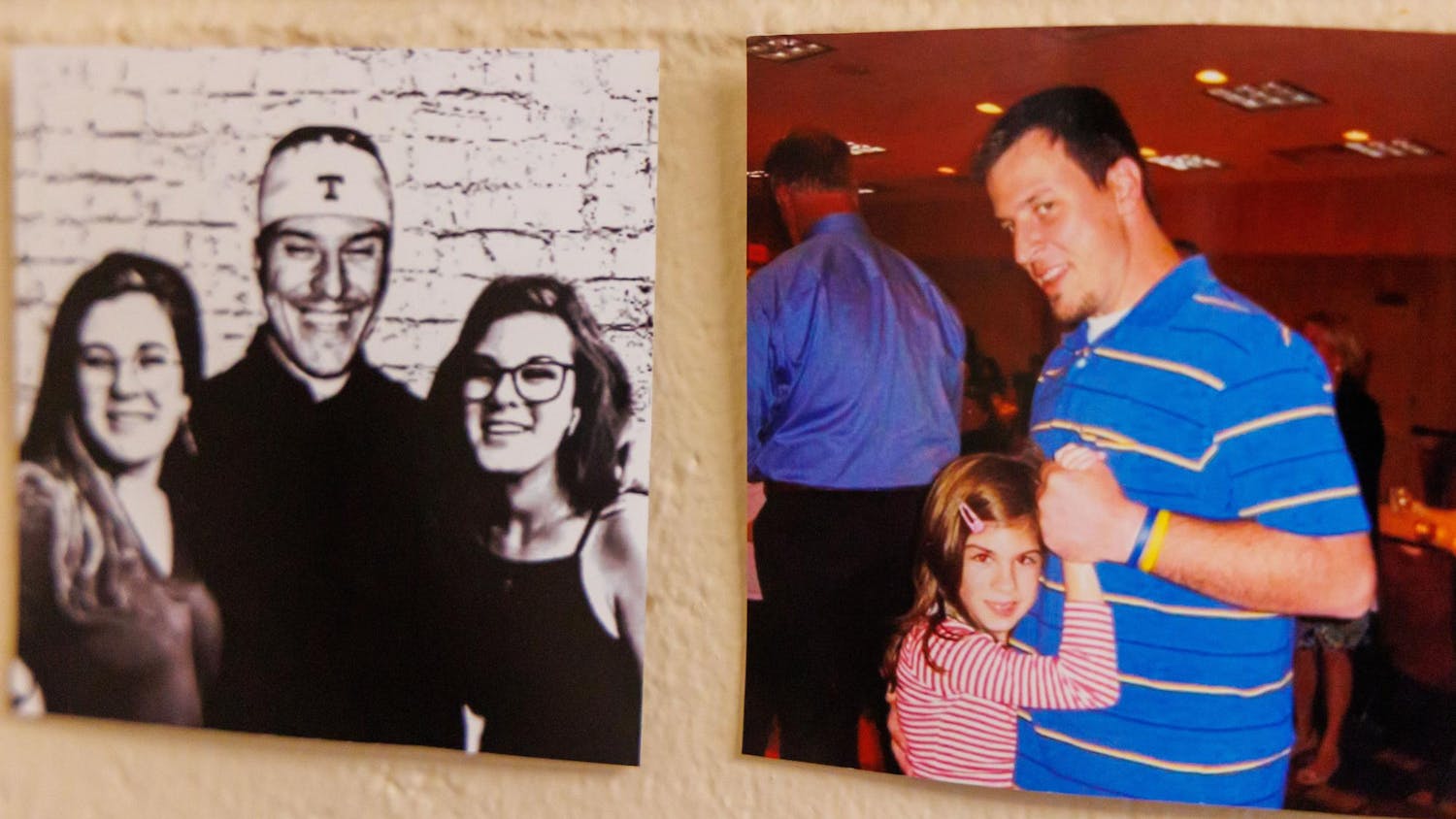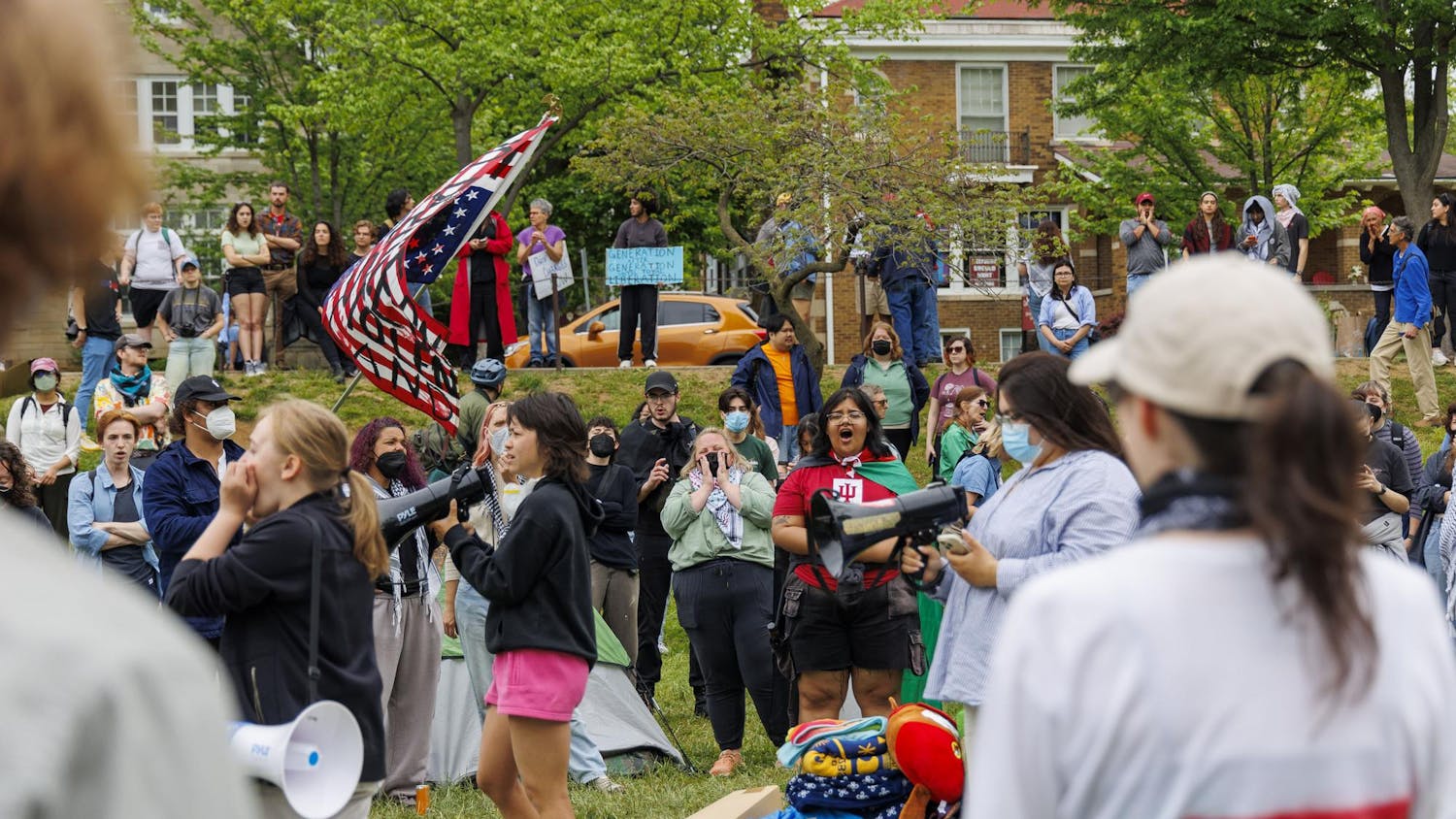After decades of violent conflict and six years of uneasy peace, the road to independence is being tread by southern Sudanese.
For 22 years northern Sudan was pitted against the South in armed conflict that cost two million lives.
Five million more were forced to flee or be killed.
In 2005, a peace agreement was reached with the condition that southern Sudanese would be allowed to vote to secede in the future. If passed next month, the referendum would split Sudan into two independent nations.
Although southern Sudan is on the brink of secession, some southern Sudanese refugees have committed to leading a life in the United States regardless of the results such as Peter Thiong.
Thiong came to the United States in September 2001. He did not live very long in Sudan but spent most of his childhood in refugee camps in Ethiopia, Kenya and other nearby countries.
Thiong has been following the political news coming from Sudan and said he favors separation. He said Sudan has a much better chance at peace if the South secedes than if it remains united with the North.
“I did not cast a vote, but I’m siding with those who cast their votes for separation, since it is the only healthy choice for the whole country,” Thiong said.
Voting occurred from Jan. 9 to Jan. 15 and preliminary reports show overwhelming support for secession.
Early reports from Sudan indicate more than 90 percent of the votes are in favor of secession.
Sudanese in other countries, including the United States, were allowed to cast votes at centers in certain cities including Chicago and Nashville.
“I think it really went very well,” said Agnes Oswaha, co-founder of the Southern Sudanese Women’s Association. “The Sudanese in America were represented in the vote.”
Oswaha said 98.9 percent of the nearly 9,000 who voted in America voted in favor of secession, and early reports from other countries reflect these numbers.
Oswaha said all of the votes should be compiled and results will be announced by Feb. 2. If there is no objection, southern Sudan will begin its transition into a new nation.
“If there is no appeal process, South Sudan will declare itself an independent state on July 9,” Oswaha said.
But the story of the Sudanese referendum is not the story of politics. It is the story of people.
Beginning in 2001, 150 of the 4,000 refugees who came from southern Sudan to the United States settled in nearby Louisville, Ky. They became known as the Lost Boys and Lost Girls because they were forced to raise themselves after war tore them from their homes.
The Lost Boys and Girls now watch from afar as their homeland may become the world’s youngest nation.
Most of them did not vote for or against secession. Some remain torn between unifying the conflicting parties and splitting them apart. But some like Thiong said secession is the only road to peace.
Besides, few if any of the Lost Boys and Girls plan to return to Sudan. Many have started successful lives in the United States.
Ngor Biar Deng was the first Lost Boy to earn a college degree of those in Louisville and one of the first of the Sudanese refugees in the United States. He holds a bachelor’s in chemistry from the University of Louisville.
James Maluak Malou was a founding member of the Sudanese Refugee Education Fund and was recently recognized for his dedication to the community.
Kuol Kuai Deng began as a young boy living in refugee camps in Ethiopia. Now he holds a bachelor’s of science in public health.
During the past 10 years Thiong has also built a life in Louisville.
In 2001, Thiong flew from Kenya to Saudi Arabia, Rome, France and finally the United States.
He enrolled in GED courses and began working at the University of Louisville Hospital.
In 2005, the same year the peace treaty that ended the civil war was signed, Thiong began courses at Berea College.
At Berea Thiong spent the majority of his time working on the college’s farmland.
“I worked at the college farm with cattle, goats, sheep and other animals,” Thiong said. “Planting and harvesting crops with the tractor was my favorite.”
Since earning his degree, Thiong has dedicated his career to public service.
He currently works at Youthbuild in Louisville. The center helps unemployed and undereducated young adults, ages 16 to 24, earn their GED or high school diploma.
The young adults also assist in building affordable housing for local homeless and low-income families.
Part of Thiong’s responsibilities include managing Youthbuild’s garden and coordinating community service activities with the students and surrounding neighborhoods.
“I have an opportunity to teach students how to grow their own food and give back to the communities by carrying out volunteering service in the communities when needed,” Thiong said.
Still, he vividly remembers his childhood in Juba, Sudan.
Thiong said he fondly remembers living in a small home with his family. They were very close and talked, laughed and enjoyed life with one another.
But not all of Thiong’s memories of Sudan were happy. His mother, father and two sisters and two brothers were killed in conflict.
When he was young Thiong fled to Kenya. Around him, refugees became malnourished and sickly. Young and old who had survived the bullet succumbed to illness and faded away, but he survived.
Although he doesn’t have any plans to move back to Sudan and didn’t participate in the referendum, Sudan remains an important memory.
“All I could remember from my childhood in Sudan is when I wrestled our village boys, herded cattle and goats and cuddled with love by my family,” Thiong said. “It was heavenly living in Sudan.”
As war-torn country decides future, Sudanese in the US start new lives
Get stories like this in your inbox
Subscribe





